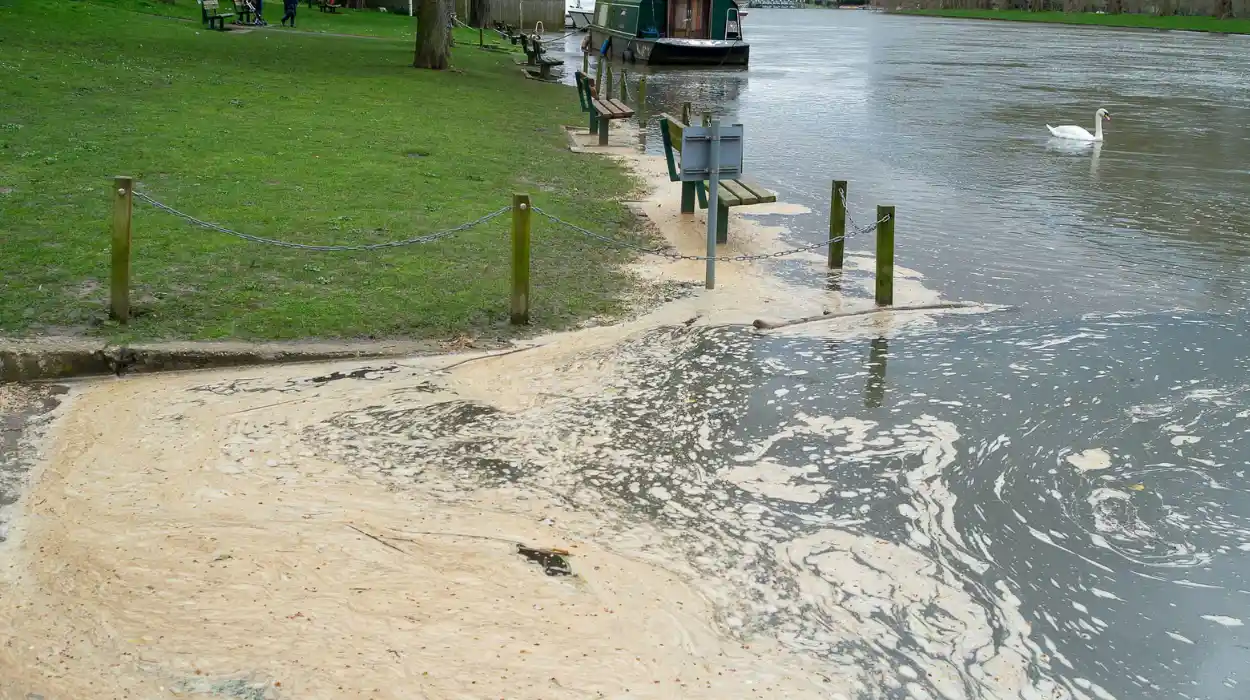UK (Parliament Politics Magazine) – UK government report urges making wet wipe producers pay for England’s river pollution, supporting a “polluter pays” model to reduce billpayer costs.
As reported by The Guardian, the author of a government review has recommended charging wet wipe manufacturers for the pollution they cause in England’s waterways.
The country’s rivers are being damaged not just by sewage but by a mix of modern pollutants. These include microplastics, consumer waste, and toxic substances like fertilisers, pesticides, and “forever chemicals” such as PFAS, which also cause serious environmental and health issues.
What did Sir Jon Cunliffe say about who should pay for pollution?
Sir Jon Cunliffe, former deputy governor of the Bank of England, said the fairest solution is applying the “polluter pays” principle, making companies cover cleanup costs.
He stated,
“The alternative is for everyone to pay for it through their bills, and the question is, should we spread that among everybody, or should we go through a polluter pays route? So I think, really, we should look at those routes.”
The idea of making companies responsible for major pollutants, like wet wipes and PFAS, pay for the damage is gaining traction. Mr Cunliffe said,
“One of the best ways to deal with stuff not going into our rivers is not to let it into the sewers in the first place. Why do we need wet wipes?”
He added,
“I have some sympathy for the water companies, because the drinking water system is closed and no one can touch it unless authorised to do so. The wastewater system is open. Anybody can put anything down the loo, and then at the treatment works, I’ve seen literally huge machines taking wet wipe mountains out of the sewage system.”
Mr Cunliffe believes Britain should consider a similar approach for wet wipes, saying that making plastic ones more expensive could help reduce their widespread use.
His review called on the UK government to align with EU regulations and examine how micropollutants are affecting both the environment and public health.
The ex-central bank governor said,
“It’s not the water bill payer who pays to take it out, but the people who make and buy the products … PFAS and so on will require quaternary treatment, and there are currently three levels of sewage treatment. To build another would be expensive.”
What did Water UK say about cleaning up “forever chemicals”?
A Water UK spokesperson stated,
“Removing PFAS ‘forever chemicals’ and other micropollutants from the water environment is a huge challenge because current sewage technology was never designed to deal with them. We need a national plan from the government for upgrading sewage treatment that is paid for by chemical manufacturers instead of water bill payers, as well as a ban on Pfas products that will otherwise keep making the problem worse.”
How are wet wipes contributing to the UK’s sewage crisis?
According to water companies, wet wipes not only shed harmful microplastics but also cause major blockages and contribute heavily to sewage pollution.
Southern Water’s wastewater head, John Penicud, recently stated that,
“The majority of wastewater pollutions are caused by wet wipes, fats, oils and grease being flushed down toilets and sinks.”
He urged a ban on wet wipes to prevent further damage.
How is the EU tackling toxic wastewater chemicals?
The EU plans to implement quaternary treatment, a high-level process that surpasses current UK standards.
The EU’s new system can eliminate trace chemicals from water, but due to its high cost, the bloc plans to impose a levy on chemical producers to fund treatment facilities.
Under the EU proposal, manufacturers would have to fund at least 80% of the costs linked to wastewater treatment upgrades aimed at eliminating harmful substances.
What did Cunliffe’s review say about cleaning rivers?
Sir Cunliffe’s major findings have marked a turning point for the water sector, with bold new plans to tackle pollution in England’s rivers and seas.
The government has announced plans to abolish Ofwat and launch a new, powerful regulator to strengthen oversight of water companies.
Environmental groups have welcomed proposals to end self-reporting by water firms, calling it a vital step toward uncovering the true extent of sewage discharges.
Citizen scientists have warned that voluntary reporting enables sewage undercounts. The new plan would require real-time data to be published online.
What Steve Reed refused to let the review consider?
Critics argue that the review lacked ambition, with Environmental Secretary Steve Reed ruling out nationalisation from the start and refusing to explore bolder ideas, such as shifting water firms to not-for-profit models.
Public fury has been driven not just by sewage spills, but by years of poor oversight at water companies.


